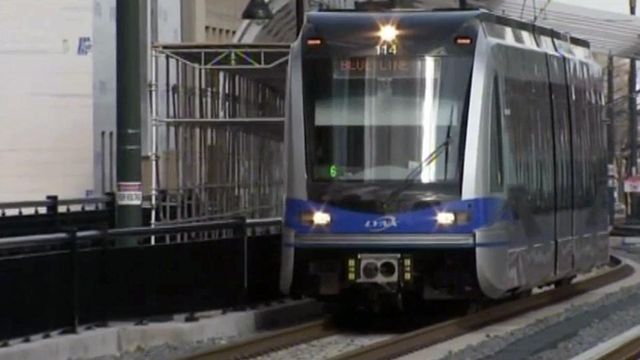Panel advises Wake to slow down on mass transit plans
A panel of national experts assembled by county commissioners to look at mass transit in Wake County advised leaders Tuesday to proceed with caution on any plans for rail and rapid-bus systems in the area.
Posted — UpdatedA panel of national experts assembled by county commissioners to look at mass transit in Wake County advised leaders Tuesday to proceed with caution on any plans for rail and rapid-bus systems in the area.
"What we found were the (bus) ridership numbers are fairly low," Clarence Marsella, former general manager and chief executive officer of the Denver Regional Transportation District, told county leaders at a meeting Tuesday.
Adding rail typically increases ridership 30 percent, he said, so 30 percent of an already low number doesn't justify the high cost of rail.
The experts also said that congestion in Wake County and surrounding areas is not as bad as other places in the country and that the area already has a well-functioning road system. and that the area already has a well-functioning road system. This is repeated
The question of rail has been raised for years in the Triangle.
Other cities, including Chapel Hill and Durham, have plans in the works already, but Wake County Commissioner Paul Coble said he has never really embraced it.
He says the experts back him up.
"I think the message to take away is that we're not ready either by plan, design or size," Coble said Tuesday.
Rail and rapid bus infrastructure is costly to build, and fewer federal dollars are available.
Still, many proponents of mass transit say Wake County and specifically Raleigh can't afford not to have it.
"If we don't come up with a plan, you might as well look at Atlanta because we'll have similar congestion as they have," Raleigh City Planning Director Mitch Silver said.
Wake County is currently home to approximately 960,000 residents, and that number is expected to reach 1 million within the next three years.
The panel recommended that Wake County approach local and regional transit gradually, first with enhanced bus service, then rail down the line.
Coble said that's what he's been saying for years.
"I think what we're seeing this afternoon is a lot of people who've made a lot of money pushing rail have suddenly been told it's not the way to go," Coble said.
County commissioners say they will take the expert analysis and start talking with local and regional partners to determine how and when to move forward with any kind of transit plan.
• Credits
Copyright 2024 by Capitol Broadcasting Company. All rights reserved. This material may not be published, broadcast, rewritten or redistributed.





